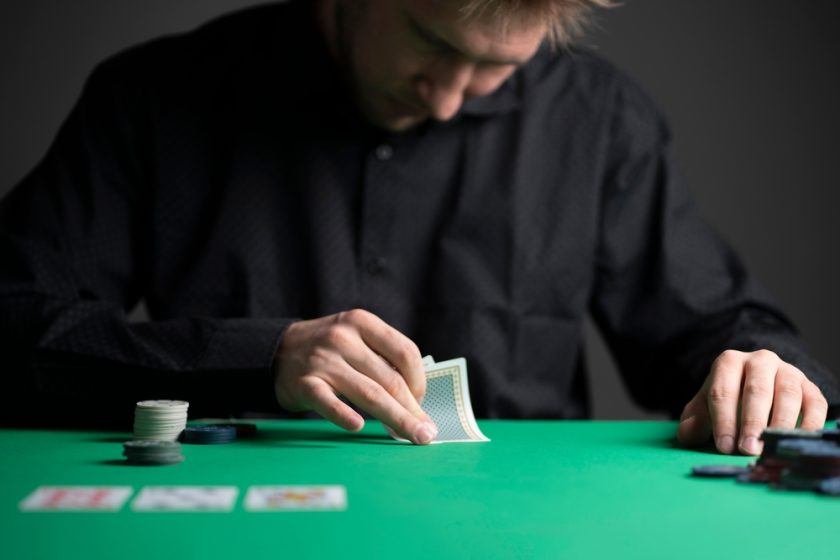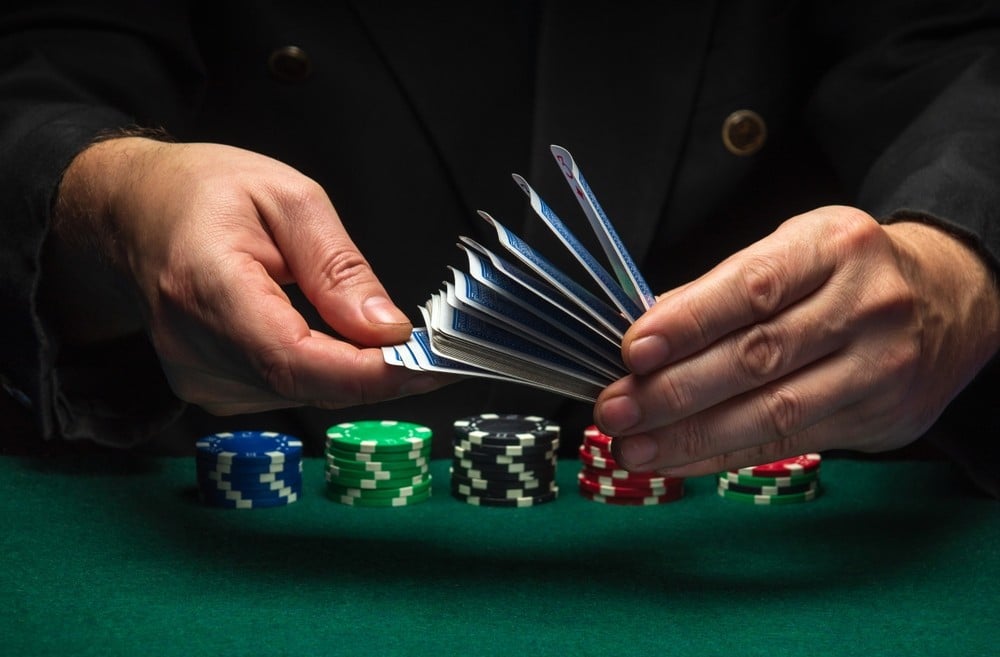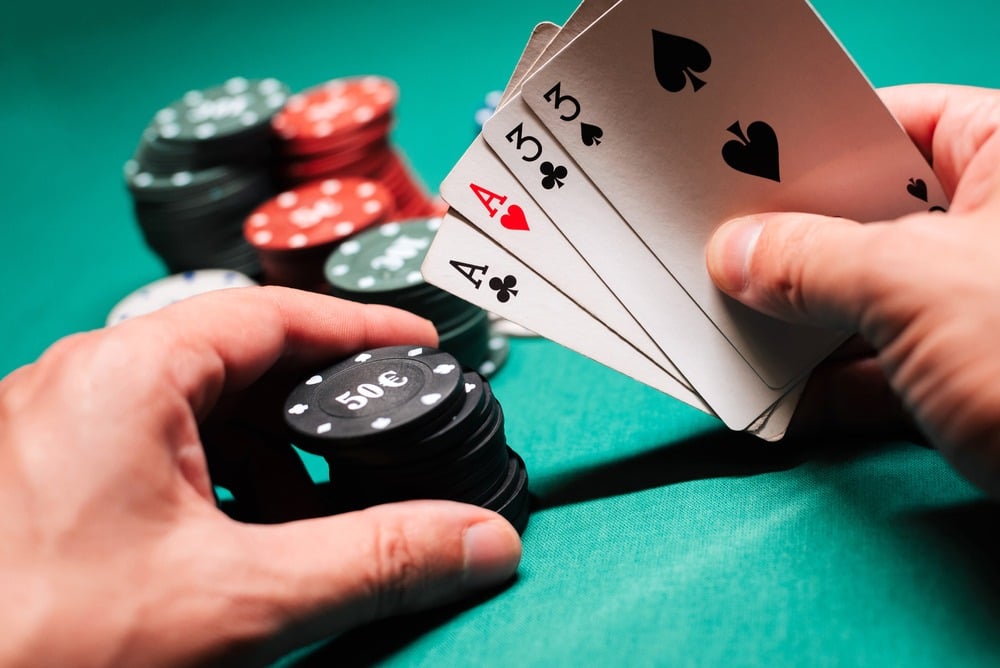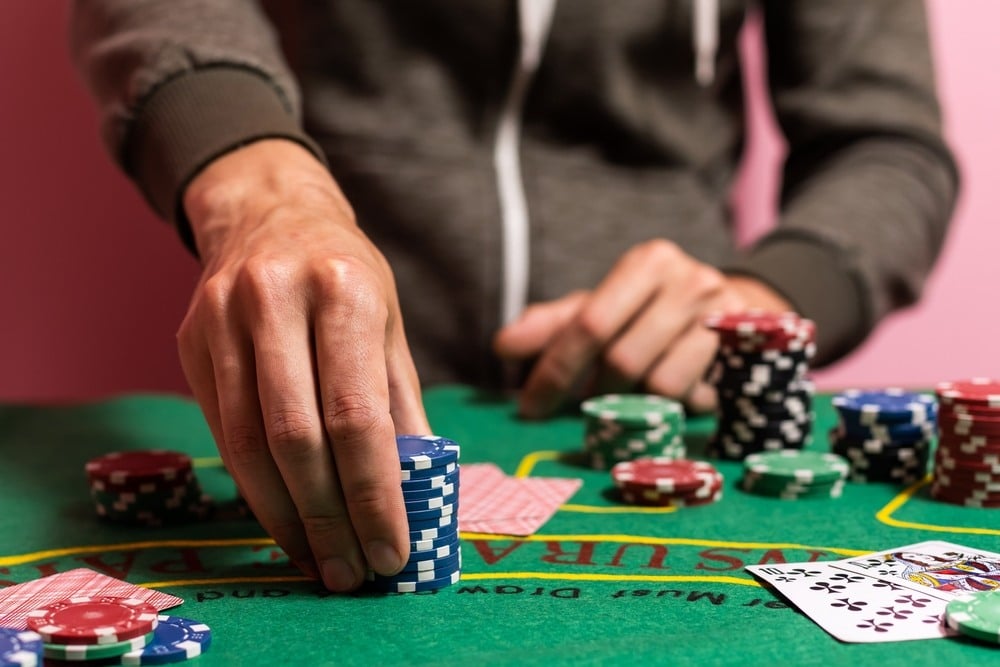Mastering Mental Recovery After a Bad Beat in Poker: Strategies for Bouncing Back

Image Credit: Mike_shots/Shutterstock
Essential Strategies for Overcoming Tough Poker Sessions
Every serious poker player knows the sting of a tough run-leaving the felt after a rough loss, suffering an unexpected bad beat, or making a costly miscalculation. These moments are not only frustrating, but they can shake your confidence and impact future performance if not managed effectively.
The key to long-term poker success isn’t avoiding losses-it’s developing the mindset and habits that help you recover, learn, and return to the game stronger. Let’s explore fundamental strategies that equip you to process setbacks and maintain peak mental game.
- Practice Emotional Separation: Learn how to view losses with objectivity, understanding variance is an intrinsic part of poker.
- Review and Reflect: Analyze hands with a clear mind to uncover areas for improvement.
- Maintain Positivity: Focus on constructive thinking and self-encouragement, leaving critical self-talk at the door.
- Support Your Physical Health: Use exercise or relaxation practices to offset stress and reset your mindset.
- Seek Expert Support If Needed: Reach out to coaches or professionals when persistent struggles affect your mental health.
Poker is a game of inevitable ups and downs-even the world’s top players occasionally experience cold runs and make mistakes under pressure. By learning to bounce back and handle rough patches with the right approach, you ensure negative sessions don’t overshadow your poker journey or personal life.

Image Credit: VITALII BORKOVSKYI/Shutterstock
Embrace and Process Negative Experiences
It’s natural for difficult poker sessions to stir up emotions like frustration, anger, or self-doubt. Tempting as it might be to distract yourself or deny what you’re feeling, suppressing these responses allows negativity to stick around longer and disrupt your future focus.
Accepting the reality of tough sessions-without judgment or self-condemnation-is the cornerstone of healthy mental recovery.
Why Acceptance Matters
Recognizing your emotions makes them less powerful. Acceptance doesn’t mean approving of losses; it’s about acknowledging reality so you can process and move beyond the setback.
Practical Steps to Acceptance
-
Name Your Feelings:
- Identify your emotional state directly. For example, “I’m upset over losing multiple buy-ins,” or “I feel frustrated about a misplayed hand.”
-
Use Mindfulness:
- Mentally revisit the session as if you’re narrating to someone else, focusing on facts rather than drama or blame. State, “I lost a large pot due to an opponent’s river card,” instead of lamenting about luck.
-
Put It in Perspective:
- Remind yourself that no one, including elite professionals, is immune to losing streaks. Adopt the mindset that setbacks are simply part of the game’s landscape.

Image Credit: alexkoral/Shutterstock
Distinguish Facts from Negative Narratives
After a tough session, it’s easy to create negative stories-such as believing that you’re doomed to lose or simply “bad” at poker. These scripts exaggerate reality, harming your outlook and confidence.
Challenge yourself to differentiate what actually happened from the stories your mind invents in response.
Understanding the Trap
The human brain is predisposed to focus on setbacks and assign personal blame, a remnant of our built-in negativity bias. To prevent this, deliberately separate your emotions and assumptions from concrete facts.
How to Realign Your Perspective
-
Record the Facts:
- Jot down objective outcomes (like “lost three buy-ins”) and avoid judgmental language about your abilities.
-
Identify Thought Distortions:
- Recognize patterns like catastrophizing (“I’ll never win again”), overgeneralizing, or black/white thinking. Question whether these are logical or supported by evidence.
-
Reframe Your Story:
- Replace exaggerated beliefs with growth-oriented narratives. If you lost with a premium hand, focus instead on whether it was played correctly rather than on unlucky results.

Image Credit: Dmitry Morgan/Shutterstock
Regain Emotional Balance After Tough Rounds
Emotions can run hot after a difficult loss, clouding your decision-making in subsequent games. Learning to quickly reset and regulate your emotional state is vital for returning to play with clarity and control.
Why Controlling Emotions is Key
Poker is a strategy game, and sound judgment requires a clear, centered mind. Emotional residue from previous sessions increases the risk of making reactive, rather than optimal, choices.
Techniques for Rapid Emotional Reset
-
Breathe Deeply:
- Try the ‘6-2-7’ technique: inhale for six counts, hold for two, and slowly exhale for seven. Repeat for several cycles to calm anxiety and restore focus.
-
Practice Gratitude:
- List three things, on or off the felt, you’re grateful for. This positive focus can help shift your state of mind after losses.
-
Set Up a Post-Game Ritual:
- Signal a mental transition by journaling, meditating, or listening to calming music. Design a consistent routine that marks the session’s end and allows you to let go of lingering emotions.

Image Credit: Andrew Angelov/Shutterstock
Analyze and Grow: Turning Setbacks into Lessons
One of the most productive ways to move forward from a disappointing session is to extract meaningful lessons-without spiraling into endless self-criticism or rumination.
The Value of Balanced Reflection
Objective analysis helps uncover improvement areas and reinforces what you did well. However, getting stuck replaying the same hand repeatedly is neither helpful nor healthy.
Guided Approach to Reviewing Sessions
-
Prioritize Quality Decisions:
- Evaluate your choices based on the information you had, not the hand’s result. For instance, don’t assume a loss with pocket kings was automatically poor play-dig into the context and your reasoning.
-
Develop a Structured Review Method:
- For each reviewed hand, consider:
- Game situation (stack sizes, position, opponent tendencies)
- Your reasoning (range, odds, reads)
- What could have improved?
- Key takeaways
- For each reviewed hand, consider:
-
Differentiate Between Controllable and Uncontrollable Factors:
- Focus energy on your tactics and responses rather than elements like runouts or opponents’ unpredictable moves.
-
Set Focused Goals:
- Pick one specific improvement (for example, paying more attention to bet sizing or positional play) as a target for your next session.
-
Avoid Overanalyzing:
- Limit reviews to a manageable time, and bring tough spots to peers or a coach for outside perspective.
Quick Post-Session Reflection Guide
- Spend five minutes after each session answering:
- What went well?
- What needs improvement?
- What’s my next focus goal?

Image Credit: ASDF_MEDIA/Shutterstock
Recenter and Prepare for Your Next Poker Challenge
After you’ve reflected and learned from a tough session, the next crucial step is to mentally reset and approach your upcoming games with renewed purpose.
The Importance of Resetting
Carrying emotional fatigue or frustration forward can only lead to compounded mistakes and tilt. A comprehensive reset ensures you play with composure and dedication, regardless of previous outcomes.
Actionable Reset Techniques
-
Establish a Mental Reset Routine:
- Engage in brief physical exercise, note what you’re leaving behind, and consciously affirm a positive intention for your next session.
-
Set a Process-Oriented Goal:
- Goal examples: “Stay disciplined preflop,” or “Remain focused and present at the table.” Avoid goals tied strictly to recouping losses.
-
Develop a Pre-Session Warm-Up:
- Spend a few minutes reviewing notes, visualizing level-headed play, or practicing relaxation techniques before you log in or take your seat.
-
Don’t Rush Back:
- If you feel motivated primarily by frustration or a desire to chase losses, step away until you’re genuinely ready to return in a clear headspace.
Strengthen Your Mental Resilience for the Long Haul
No poker career is free from brutal sessions or unlucky runs. However, your true poker strength is defined by how you respond to these challenges. Each time you bounce back, you reinforce your mental toughness-the bedrock of consistent long-term results at the table.
Approach losing days as unique opportunities to build resilience. Rather than viewing setbacks as obstacles, treat them as valuable lessons that nurture emotional regulation, inspire strategic refinement, and bolster your commitment to growth.
By consciously developing experience-driven recovery habits, you’ll gain the composure, confidence, and adaptability required for poker success-no matter what the deck deals you.













